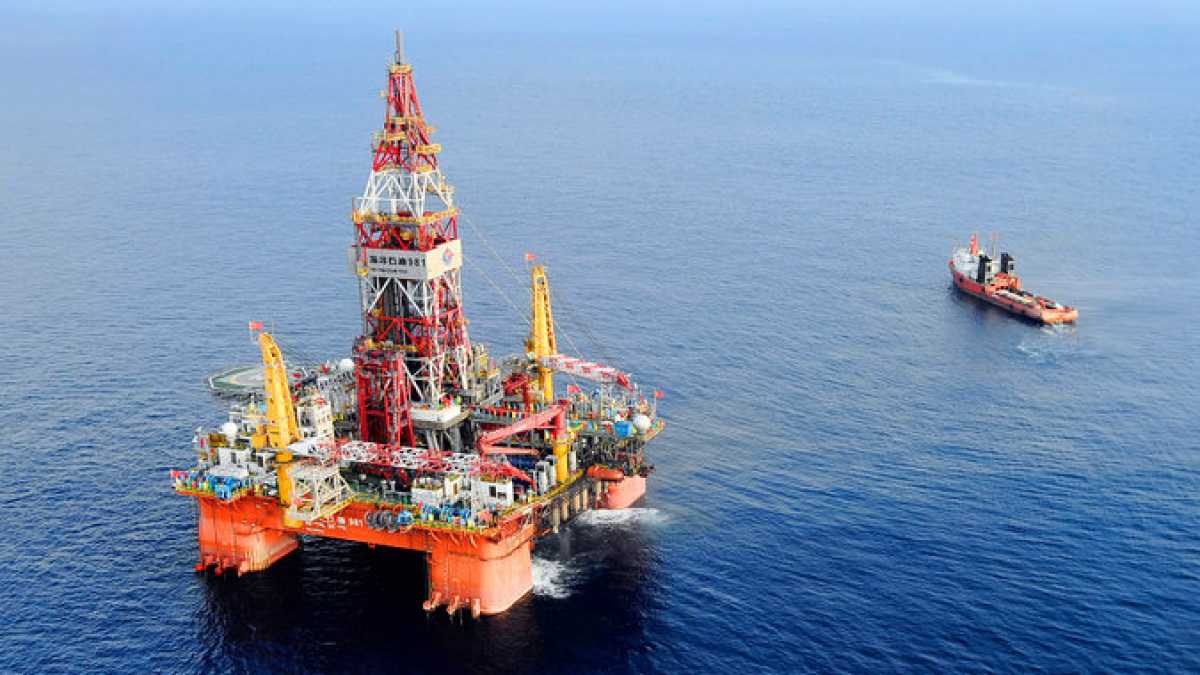Trump issues order to allow “responsible development” of offshore drilling areas

AP photo
President Donald Trump signed an executive order Friday that could expand drilling for oil and gas in the Atlantic, Arctic, and Pacific oceans.
The action reverses former President Barack Obama’s action late last year that permanently banned drilling in nearly 4 million acres in the northern and middle portions of the Atlantic Ocean.
Obama asserted executive authority permitted by an arcane provision in the Outer Continental Shelf Land Act of 1953 to enact the ban.
In March 2016, the Obama administration removed the Atlantic Ocean from lease sales in the 2017-2022 Outer Continental Shelf Oil and Gas Leasing Program, which is under the auspices of the Bureau of Ocean Energy Management and required by the Outer Continental Shelf Lands Act.
Trump’s order directs the U.S. Interior Department to review the current offshore drilling program allowances and asks the department to expand the program.
“This executive order starts the process of opening offshore areas to job-creating energy exploration,” Trump said during the signing ceremony. “It reverses the previous administration’s Arctic leasing ban and directs Secretary Zinke to allow responsible development of offshore areas that will bring revenue to our treasury and jobs to our workers.”
The president added that he’s “unleashing American energy and clearing the way for thousands and thousands of high-paying energy jobs.”
But if past actions from Jersey Shore lawmakers and environmentalists are any indication, a major battle will ensue.
In a Nov. 2016 letter, Rep. Frank Pallone Jr., representing a portion of the northern Jersey Shore, said that permanently banning offshore drilling is essential to leading the fight against global warming.
“A major part of that effort should include preventing dangerous and environmentally harmful oil and gas extraction in the Atlantic and Arctic oceans,” the congressman wrote. “Doing so would help our nation deliver on our climate commitments, and help protect our coastal communities from the health, environmental, and economic impacts of climate change, as well as the possibility of a devastating oil spill.”
Pallone said that preventing drilling would protect coastal communities, commercial fisheries, wildlife, and tourism. In New Jersey, the tourism economy supports 312,000 jobs and generates $38 billion in revenue annually.
“The economic and health benefits of taking that step cannot be underestimated,” he wrote.
But Thomas Pyle, president of the Institute for Energy Research, an industry trade group, told NJ Spotlight last year that restricting drilling would impact “the poor and middle class, who would benefit most from greater access to affordable, reliable energy.”
NJ Spotlight also reported that while the closest drilling to New Jersey would be off Virginia, opponents feared a spill adversely impacting the Jersey Shore.
WHYY is your source for fact-based, in-depth journalism and information. As a nonprofit organization, we rely on financial support from readers like you. Please give today.

